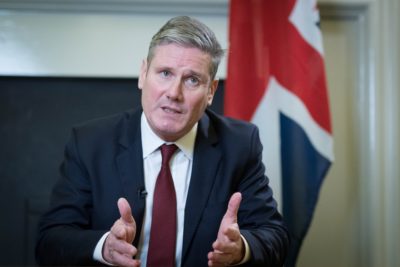Labour leader Sir Keir Starmer has outlined a cost of living plan that he would introduce if he were in-power to cushion the blow of the energy crisis.
Branding the crisis as a “national emergency”, Labour said it would scrap the £400 cost of living payment and freeze electricity and gas bill prices at their current state for six months. The party plans to fund this by increasing tax on oil and gas companies in hope of raising around £29bn.
Energy bills are forecast to be capped at £3,582 per year in October and £4,266 in January, both of which Starmer’s plan is set to block. However, the plan does nothing to stop the increase in April when bills are expected to hit £5,000 per year.
Unveiling the £29bn plan to help with soaring energy costs, Sir Keir said Labour “wouldn’t let people pay a penny more” than they currently do on their fuel bills, which is still 54% higher than the average Brit paid last winter.


He added that if Labour’s plan was adopted, the average family would see savings of £1,000.
Detailing where the funds would come from, Labour says that cancelling the government’s planned £400 payment to families would free up £14bn. £8bn would come from a windfall tax on gas and oil producers (backdated to January this year) and the final £7bn would be generated by the policy’s positive effect on inflation.
Responding to the proposals, Paul Johnson of the Institute for Fiscal Studies said the scheme was effective but would entirely mitigate the impacts of energy price increases.
He told the Today Programme: “You’re looking at the cost of furlough, so a very expensive scheme. What it does achieve is to protect everybody entirely from the increases in energy prices, so, if that’s what you want to achieve then that’s what we need to do.”
He also acknowledged the fully costed nature of the proposals, noting it was “more than what the leadership candidates have done” and shows that Labour have arguably gone “above and beyond”.
The current government has pledged £37bn of support to help people through the winter.
In the plan, Sir Keir also said that freezing the price cap at the current level of £1,971 a year would bring inflation down by four percentage points.
Inflation hit 9.4% in June which is the highest level for more than 40 years. This figure is expected to increase to around 13% later this year.
Behind this soaring inflation is an increase in energy bill prices, driven mainly by Russia’s invasion of Ukraine. Other factors include higher fuel and rising food costs.

